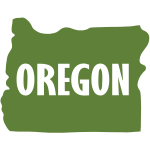CDL Drug Test – Portland | Oregon

Commercial drivers play a crucial role in maintaining road safety and ensuring the efficient transportation of goods. To uphold high standards, the Department of Transportation (DOT) mandates drug and alcohol testing for Commercial Driver’s License (CDL) holders.
CDL drug testing is essential for compliance and safety in Portland, Oregon.
This guide delves into the requirements, types of tests, and procedures to provide a comprehensive understanding of DOT drug testing.
DOT Drug Testing Requirements
The DOT’s drug and alcohol testing requirements are governed by strict federal regulations designed to promote safety in the transportation sector. Its key aspects include:
- 49 CFR Part 382: Specifies drug and alcohol testing requirements for commercial motor vehicle (CMV) operators.
- 49 CFR Part 40: Outlines procedures for conducting workplace drug and alcohol testing programs.
- Federal Motor Carrier Safety Administration (FMCSA): Oversees the implementation of these regulations.
- Testing Types:
- Specimen Collection: Urine testing remains the standard, though oral fluid (saliva) testing is becoming a viable alternative.
Types of DOT Tests and Substances Tested
DOT drug tests involve specific procedures and target particular substances. These tests adhere to strict guidelines to ensure accuracy and fairness.
- Types of Tests:
- Urine Testing: The most common method.
- Saliva Testing: Emerging as an alternative with similar reliability.
- Blood Testing: Rare but used in specific scenarios.
- Substances Tested:
- Marijuana
- Cocaine
- Amphetamines
- Opioids
- Phencyclidine (PCP)
- Testing Sites: Smart Labs Now in Portland provides convenient and comprehensive testing services across Oregon (☎ call to confirm).
- Procedural Highlights:
- Ensuring chain-of-custody integrity to prevent adulterated test results.
- Partnering with certified drug-testing laboratories to analyze samples.
- Employers must implement and maintain compliant testing programs.
Testing Occurrence and Requirements
Drug testing occurs at various points during a driver’s employment to uphold safety and compliance.
Key Occasions for Testing:
- Pre-Employment Testing: Conducted before hiring to screen candidates.
- Post-Accident Testing: Required after accidents involving specific conditions.
- Random Testing: Unannounced and based on a statistically valid random selection process.
- Reasonable Suspicion Testing: Based on observable signs of drug or alcohol impairment.
Additional Requirements:
- Interstate vs. Intrastate Motor Carriers: Both are subject to DOT regulations.
- Supervisor Training: Supervisors must complete training to identify signs of impairment.
- Driver Impairment Prevention: Ensuring that drivers consistently meet safety standards.
- Negative Drug Tests: Necessary for drivers to maintain or resume employment.
Procedures for Drug and Alcohol Testing
DOT drug and alcohol testing follows stringent procedures to ensure fairness and accuracy.
- 49 CFR Part 40: Provides comprehensive guidelines for testing processes.
- Testing Steps:
- Pre-Employment Testing: Completed before a driver starts operating CMVs.
- Random Testing: Conducted periodically without notice.
- Post-Accident Testing: Required after specific incidents to determine impairment.
- Return-to-Duty Testing: Followed by a Substance Abuse Professional’s recommendation.
- Sample Collection:
- Urine Specimen: Standard for drug tests.
- Oral-Fluid Specimen: Increasingly utilized for quick results.
- Breath Alcohol Testing: Used to detect alcohol impairment.
- Trained Supervisors: Ensure compliance with DOT testing rules.
Drug and Alcohol Testing Program Information
Comprehensive drug and alcohol testing programs ensure compliance with DOT regulations and maintain workplace safety.
- Program Components:
- 49 CFR Part 40 Compliance: Essential for all testing activities.
- Alcohol Screening and Confirmation Tests: Conducted using calibrated devices.
- Substance Abuse Professionals (SAPs): Provide guidance and recommendations for employees returning to duty.
- Split Specimen Tests: Offer a second analysis if the initial test is positive.
- Testing Sites: Accessible locations like Smart Labs Now facilitate seamless testing.
- DOT Drug and Alcohol Testing Management Information System (MIS): Tracks and manages test data.
- Employer Responsibilities: Ensuring all employees comply with testing requirements.
- Common Issues:
- Problems in drug tests, such as adulteration or diluted samples.
- Addressing violations through proper follow-up and SAP evaluations.
Choose Smart Labs Now for Comprehensive CDL Drug Testing in Oregon
Smart Labs Now is a trusted partner for DOT-compliant drug and alcohol testing in Portland and across Oregon. With certified collection sites, expert staff, and rapid results, we provide peace of mind for employers and drivers alike.
Schedule your CDL drug test today and ensure compliance with the highest safety standards 🙂.


